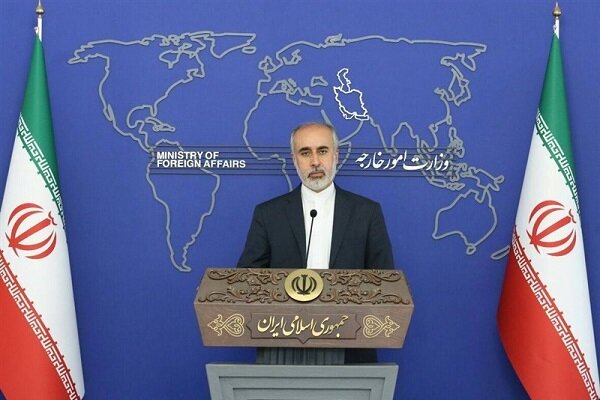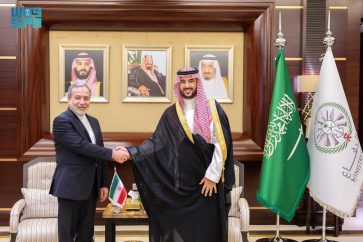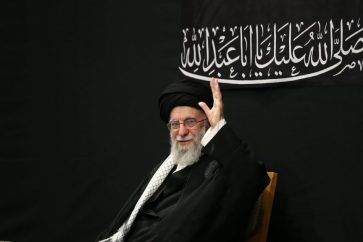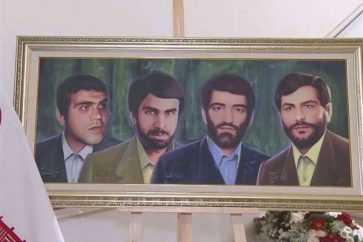Iran has repeatedly stated that it adheres to the process of negotiations to revive the 2015 nuclear agreement, says Foreign Ministry spokesman Nasser Kanaani.
Speaking at a presser on Monday, Kanaani said Tehran regards the negotiation process as a suitable path to revive the deal, also called the Joint Comprehensive Plan of Action (JCPOA), which was unilaterally ditched by the United States in 2018.
“We have stated many times that we adhere to the process of negotiations for a responsible return of all parties to the JCPOA,” he said.
He further noted that Tehran has been engaged in indirect talks with Washington and that some friendly countries have also offered their initiatives to bring the parties’ views closer to each other.
“The agreement in our mind is the JCPOA of 2015, under which Iran fulfilled its commitments, but unfortunately, Europe and the United States turned their backs and the United States unilaterally withdrew from it,” said Kanaani.
He also referred to Oman’s initiative to bring the parities’ views closer to one another and return all parties to their commitments, saying Iran welcomes the good-faith efforts of friendly countries in this regard.
“If the other side has the will to responsibly return to the JCPOA, Iran is also ready to help in this direction, and we adhere to the diplomatic process for an agreement,” the Foreign Ministry spokesman said.
He hastened to add, “At the same time, we do not tie our diplomatic efforts to the JCPOA and an agreement (to revive it), but we will also follow the path of neutralization of sanctions.”
Visit of Armenian security official to Iran
Elsewhere in his remarks, the spokesman referred to the recent visit of the secretary of the National Security Council of Armenia Armen Grigoryan to Iran and said such a visit took place in line with the continuation of talks and contacts between the two neighboring countries to review the bilateral relations and the developments in the Caucasus region.
Kanaani noted that such a visit was an opportunity for the Islamic Republic to express its viewpoints about the solution for solving the conflicts in the Caucasus region through regional potentials.
As the spokesman underlined, the Islamic Republic attaches importance to the conditions of Caucasus and of course the entire region, and the visit of the Armenian official to Iran took place to discuss those conditions.
He went on to say that Tehran welcomes the removal of conflicts between Baku and Yerevan, stressing that Iran is against any change in the international and geopolitical borders.
On the latest remarks made by Iranian Foreign Minister Hossein Amirabdollahian about the Zangezur corridor, he said the Islamic Republic is after the development of the transportation networks which will secure the benefits of all regional countries; meanwhile, the country is against changes in the international borders.
About the disputed Nagorno-Karabakh region between Armenia and Azerbaijan, Kanaani said Iran supports full return of this occupied region to Azerbaijan.
Iran is ready to carry out whatever it can to solve the issue of Caucasus, he added.
Asked about Iran’s plan for taking humanitarian measures towards Armenians who have forcibly moved from the Nagorno-Karabakh region, the spokesman answered that the details about such a plan will be released by the Iranian Red Crescent Society.
An official from the Republic of Azerbaijan is set to visit Iran, Kanaani said, adding that the exact date of the visit will be announced in due course.
He also said that in addition to the planned visit, bilateral discussions are currently underway on a range of issues, noting that key among these is the resumption of operations at the Azerbaijani embassy in Tehran and the developments in the Caucasus region.
Iran-Iraq security agreement
As to a security agreement between Iran and Iraq, Kanaani noted that in accordance with the security agreement the Iraqi authorities and the local government in the Kurdistan region of Iraq are expected to meet Iran’s concerns regarding the presence of terrorist groups in the northern region via disarming and relocating them to arranged positions within six months.
The deadline came to an end on September 19, he argued, adding that on the basis of Iran’s assessment, certain provisions of the agreement have been implemented while others still should be carried out.
The spokesman also said that an Iranian delegation visited Iraq to conduct a field investigation into the implementation of the security agreement and that the Iraqi authorities cooperated with the Iranian representatives very properly.
A precise assessment of the issue will be shared with the Iraqi side following the presentation of the field investigation report by the Iranian supervisory committee, he added.
In the discussions between the Iranian and the Iraqi sides, both Baghdad authorities and the officials in the Kurdistan region of Iraq emphasized that they are obligated to implement the security agreement, Kanaani said.
The Iraqis stated that a great number of the headquarters of terrorist groups have been evacuated and the terrorists have been disarmed and moved into the depths of Iraqi territory; moreover, some of their hideouts have been completely demolished, while the rest of headquarters are set to be destroyed, he added.
According to the spokesman, in anticipation of the implementation of the security agreement, Iran and Iraq continue communication and cooperation, and the Islamic Republic has time and again underscored it knows no boundary in securing the country’s borders.
Relations with Arab countries
In his remarks, the spokesman elaborated on why the foreign ministerial meeting between the Persian Gulf littoral states was not held in New York on the sidelines of the annual session of the United Nations General Assembly on September 18 to 26, the spokesman said although Iran had welcomed such a meeting and there was a public welcome, it was not held due to some political conflicts between two or more littoral countries in the Persian Gulf region.
About the situation of relations between Iran and Jordan, Kanaani said the foreign ministers of the two countries did meet in New York and agree to take steps towards upgrading the level of diplomatic ties.
About the resumption of relations between Iran and Djibouti and Maldives, the spokesman said positive steps have been taken towards the Islamic Republic and the two mentioned states after release of joint statement on the issue.
Kanaani, elsewhere, talked of the latest situation of relations between Iran and Sudan, saying that the country is willing to resume relations with Sudan and there is a positive viewpoint from Khartoum on the issue.
Iran’s relations with Sudan is promising, the spokesman further noted.
Release of nationals jailed abroad
Asked about the continuation of the exchange of prisoners with the United States, Kanaani said there is no plan for the exchange of prisoners between the two countries now, but the issue of pursuing the release of Iranian prisoners in different countries, including the US, is high on the agenda of the Iranian administration.
“We follow this issue in the form of our consular support for Iranian nationals,” he said, adding that releasing Iranian nationals who have been imprisoned on trumped-up political charges in Western countries is among Iran’s priorities.
The issue was raised by Foreign Minister Hossein Amirabdollahian with the officials of European countries on the sidelines of the latest summit of the United Nations General Assembly, he remarked.
On media speculations about Iran’s accession to the Financial Action Task Force (FATF), Kanaani said he was not aware whether Iran had such a plan, but added that the country has certain mechanisms for financial transparency.
Illegal US presence in Syria
Elsewhere during the presser, the spokesman clarified Iran’s position on the presence of American forces in Syria, saying the US government cannot be in the Arab country without the permission of the Syrian government.
“This is regarded as a violation of the territorial integrity and national sovereignty of Syria,” he pointed out.
He further condemned US actions in Syria, which he said suggested that Washington pursues the disintegration of the war-torn country. “They must end their illegal presence in Syria,” he added.
US-Iran policy
On the annual report of the United States regarding weapons of mass destruction and allegations against Iran, Kanaani said that such accusations are totally unfounded and that Iran is a loyal member state of the Non-Proliferation Treaty (NPT), which signed the Additional Protocol agreement in cooperation with the International Atomic Energy Agency (IAEA) and it is implementing it. According to the spokesman, Iran has time and again announced that nuclear weapons are not included in its military doctrine; so, it considers the usage of such weapons of mass destruction unacceptable.
We categorically reject the annual report of the US and consider it as invalid, he noted, arguing that the secretariat of the IAEA is the only authorized organization responsible for reviewing the membership of member states; so, the United States does not have the authority to evaluate the compliance of other nations.
In contradiction with the groundless anti-Iran allegations leveled by the United States, it is the US administration that deserves condemnation for setting up illegal laboratories around the globe and it should be held accountable to the international community, the spokesman said, adding that the United States resorts to blame game in a bid to accuse Iran fallaciously.
As to direct talks with the United States, Kanaani stated that we deny holding any direct negotiations with the Americans.
He also said that Iran will not cede its rights to return the Achaemenid tablets from the United States to the Islamic country.
The spokesman also mentioned that the Iranian administration returned a part of the collection of the Achaemenid tablets at the end of President Ebrahim Raisi’s visit to New York and that the tablets were part of a collection that was at the University of Chicago.
He went on to say that fortunately, the exemption permission for the shipment of the Iranian properties has been obtained so far and that 17,000 other tablets are still in possession of the Oriental Institute of the University of Chicago; so, negotiations are underway for their return. Iran would not stop efforts in this respect, and it pursues proper agendas to complete the process.
Quran desecration in Sweden
Regarding the recurring desecration of the Holy Quran in Sweden, Kanaani said Amirabdollahian raised the issue, including the expectations of the Muslim world from the Swedish government, in a recent meeting with his Swedish counterpart in New York.
The foreign minister also noted that the Swedish government is responsible for preventing insults to the Quran and the values of two billion Muslims, he added.
Visa cancellation with Saudi Arabia
Asked about visa cancellation plans with Saudi Arabia, the spokesman said the Foreign Ministry is examining plans for cancellation of visas with some countries, including Saudi Arabia.
“There are several plans and ideas, and meetings have been held with relevant organizations,” he said.
Positive developments in Iran-Egypt ties
Kanani further pointed to the Iran-Egypt relationship, saying that as a result of the positive developments in the region, we have also witnessed positive developments concerning the relations between Iran and Egypt, including the talks between the two countries and a meeting between their foreign ministers in New York on the sidelines of the 78th UN General Assembly.
He expressed hope that complementary steps would pave the ground for establishing a new atmosphere between Tehran and Cairo.
The spokesman also referred to allegations about connections between some US officials and Iran’s Foreign Ministry concerning the JCPOA, arguing that we are not keen on commenting on internal affairs of the US and the competition underway among American parties because it can pave the way for some people to play with Iran card; thus, we leave the issue to the US parties.
Source: Agencies




